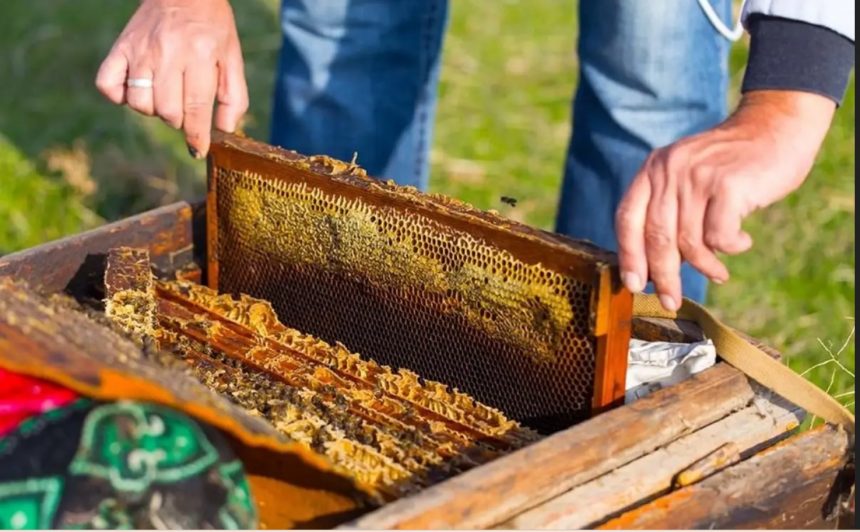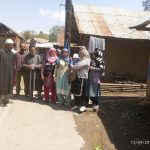Srinagar, Apr 12: Beekeeping is gaining ground across both Jammu and Kashmir divisions, with honey production rising from 13,062 quintals in 2019 to 27,092 quintals in 2024-25. The growth is part of a push to boost rural livelihoods and farm-based innovation, officials said.
Dr. Qazi Showkat Ashraf, Assistant Entomologist, Kashmir Department of Agriculture, said that beekeeping is a lucrative rural agro-horticulture-based activity that fits well into the integrated agriculture system as an allied vocation to increase the income of farmers.
He said there is tremendous scope for beekeeping in the UT of J&K due to the rich variety of flora available in the region.
“The Kashmir division of the UT has the potential for over 2 lakh colonies, which can ensure a net annual income of Rs. 117 crores for stakeholders. Currently, the apiculture sector is gaining huge market potential because of the diversity of beehive products such as bee pollen, beeswax, propolis, bee venom, and royal jelly,” he added.
Sartaj Ahmad Shah, Joint Director Agriculture, Kashmir, told Rising Kashmir that the government launched several schemes under national and local agricultural missions, including the National Beekeeping & Honey Mission (NBHM), the Mission for Integrated Development of Horticulture (MIDH), and the Holistic Agriculture Development Program (HADP) of J&K. These initiatives have led to a surge in both participation and productivity in the beekeeping sector.
He said the number of bee colonies in J&K has increased from 1.32 lakh in 2019 to over 2.27 lakh in 2024-25. Honey production has nearly doubled during the same period.
“Both Jammu and Kashmir divisions go neck-and-neck in beekeeping. Of the 4,819 estimated beekeepers across J&K, 2,699 operate in Jammu and 2,120 in Kashmir. A total of 1,675 beekeepers have been registered on the Madhukranti portal—an online database aimed at streamlining honey production and marketing,” the Joint Director said.
He added that Kashmir leads slightly with 95,618 bee colonies registered online compared to 80,460 in Jammu. Together, they contribute significantly to J&K’s burgeoning honey industry.
The Joint Director said over 40,000 bee colonies have been distributed at subsidized rates, and incentives have been provided for migratory beekeeping practices, which help maintain hive productivity across seasons. Custom Hiring Centres, equipment manufacturing units, and api-therapy centers have also been set up in both regions.
“In terms of scientific support, J&K has seen the establishment of two Honey Testing Labs, two Honey Disease Diagnostic Labs, and two Honey Processing Units—one each in Jammu and Srinagar—with an investment of over Rs. 172 lakh,” he added.
Moreover, in 2024-25 alone, 5,700 farmers and officials were trained through 82 scientific beekeeping programs, fully funded by the Government of India.
The apiculture sector has proven to be a lucrative source of income. As per the figures, income from honey sales alone has touched Rs. 13,546 lakh, with an additional Rs. 27,092 lakh generated through beeswax. Pollination services, labor wages, and the division of colonies have also contributed to a total income of nearly Rs. 9,303.82 lakh.
“This growing industry not only promises enhanced rural income but also opens up a plethora of job opportunities in farming, manufacturing, and processing sectors,” he added.








